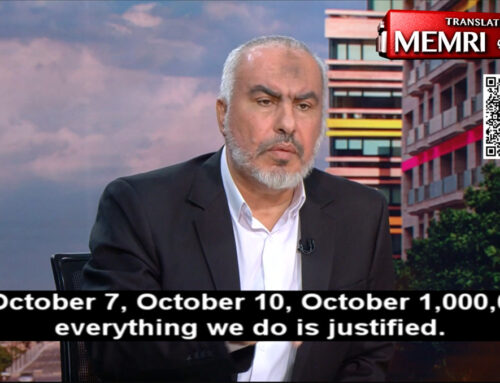Each His Own Cross
Ken Pullen
ACP
Thursday, December 13, 2011
And he said to them all, “If any man will come after me, let him deny himself, and take up his cross daily, and follow me.”
Luke 9: 23
The tenth word in verse 23, will, in the Greek is; thelō
It means;
1) to will, have in mind, intend
a) to be resolved or determined, to purpose
b) to desire, to wish
c) to love
1) to like to do a thing, be fond of doing
d) to take delight in, have pleasure
The sixteenth word in verse 23, deny, in the Greek is; aparneomai
It means;
1) to deny
a) to affirm that one has no acquaintance or connection with someone
b) to forget one’s self, lose sight of one’s self and one’s own interests
The nineteenth and twentieth words in verse 23, in the Greek are; airō
They mean;
1) to raise up, elevate, lift up
a) to raise from the ground, take up: stones
b) to raise upwards, elevate, lift up: the hand
c) to draw up: a fish
2) to take upon one’s self and carry what has been raised up, to bear
3) to bear away what has been raised, carry off
a) to move from its place
b) to take off or away what is attached to anything
c) to remove
d) to carry off, carry away with one
e) to appropriate what is taken
f) to take away from another what is his or what is committed to him, to take by force
g) to take and apply to any use
h) to take from among the living, either by a natural death, or by violence
i) cause to cease
Up until now I have not added anything to the words I’ve read and selected to publish in the “Contemplations” section of ACP. Tonight, after reading the words of A.W. Tozer, which will follow my brief introduction, I was stirred within to speak about this subject – each his own cross. As readers will discover on what follows by Mr. Tozer, a believer can refuse to take up his own cross daily, or, in the words of Mr. Tozer, “he can stoop and take it up and start for the dark hill. The difference between great sainthood and spiritual mediocrity depends upon which choice he makes.”
I am writing here tonight because I have been in spiritual mediocrity and I desire to be found pleasing and acceptable to the Lord, and to stoop down, take up my cross daily, and walk towards the Lord and spiritual living – not mediocrity.
While we all have the choice I never want to coast or just get by. Taking up my cross daily for the Lord, means being focused and determined to do so. To take pleasure in taking up my cross daily for the Lord no matter what that cross might be. To not be lazy or complacent. To not make excuses, and to exalt and place Jehovah Elyon and Yeshua as the highest priority over all else, over everyone else. And I wasn’t doing this.
Our daily cross to bear and take up can and will change as we increase our understanding, mature, and walk along the path with the Lord.
A cross I was bearing heavily for the past number of months is being lifted from me by the Holy Spirit, and I know I MUST stoop down, humble myself, and take up whatever new cross appears in my path.
I was permitting too much worldly desire to exist in my heart. Even though I would pray fervently to be drawn closer to God and to be distanced more from this world, I always fell back into these same desires. The lingerings and risings within the imagination and the heart made the pursuit of purity and the pursuit of God clouded.
I will not, I can not allow Satan to appear all beautiful and appealing and distract me from my walk; to distract me from the Lord as fully as I need to be, and to instead of taking up my cross daily and walking up the hill to resolve the matter I was mired in mediocrity.
This came to me late last night, into early morning. And I resolved today to do something about it, and to take up my cross daily, willingly, gladly, and to not remain mediocre, but to walk in the Light and grow in spiritual wisdom, understanding, and knowledge. I hesitate to say “great sainthood” as Mr. Tozer used those words, but that is in fact what I need to have my eyes and heart on, and have as my goal in this life.
Each His Own Cross
by A. W. Tozer
From his book “The Radical Cross; Living the Passion of Christ”
An earnest Christian woman sought help from Henry Suso* concerning her spiritual life. She had been imposing rigid austerities upon herself in an effort to feel the sufferings that Christ had felt on the cross. Things weren’t going so well with her and Suso knew why.
The old saint wrote his spiritual daughter and reminded her that our Lord had not said, “If anyone would come after me, he must dent himself and take up his cross daily and follow me.” (see Luke 9: 23). He had said, “He must…take up his cross daily.” There is a difference of only one small pronoun; but that difference is vast and important.
Crosses are all alike, but no two are identical. Never before nor since has there been a cross experience just like that endured by the Savior. the whole dreadful work of dying which Christ suffered was something unique in the experience of mankind. The sin bearing, the darkness, the rejection by the Father were agonies peculiar to the Person of the holy sacrifice. To claim any experience remotely like that of Christ would be more than an error; it would be sacrilege.
Every cross was and is an instrument of death, but no man could die on the cross of another; each man died on his own cross; hence Jesus said, “He must…take up his cross daily and follow me.”
Now there is a real sense in which the cross of Christ embraces all crosses and the death of Christ encompasses all deaths. “For the love of Christ constraineth us; because we thus judge, that if one died for all, then were all dead” (2 Corinthians 5: 14). “I am crucified with Christ” (Galatians 2: 20). “Save in the cross of our Lord Jesus Christ, by him the world is crucified unto me, and I unto the world” (6: 14). This is in the judicial working of God in redemption. The Christian as a member of the Body of Christ is crucified along with his divine Head. Before God every true believer is reckoned to have died when Christ died. All subsequent experience of personal crucifixion is based upon this identification with Christ on the cross.
But in the practical, everyday outworking of the believer’s crucifixion his own cross is brought into play. “He must…take up his cross daily.” that is obviously not the cross of Christ. Rather it is the believer’s own personal cross by means of which the cross of Christ is made effective in slaying his evil nature and setting him free from its power.
The believer’s own cross is one he has assumed voluntarily. Therein lies the difference between his cross and the cross on which Roman convicts died. They went to the cross against their will; he, because he chooses to do so. No Roman officer ever pointed to a cross and said, “If any man will, let him.” Only Christ said that, and by so saying He placed the whole matter in the hands of the Christian. He can refuse to take his cross, or he can stoop and take it up and start for the dark hill. The difference between great sainthood and spiritual mediocrity depends upon which choice he makes.
To go along with Christ step by step and point by point in identical suffering of Roman crucifixion is not possible for any of us and certainly is not intended by our Lord. What He does intend is that each of us should count himself dead indeed with Christ and then accept willingly whatever of self-denial, repentance, humility and humble sacrifice that may be found in the path of obedient daily living. That is his cross, and it is the only one the Lord has invited him to bear.
* Henry (Heinrich) Suso (~1296-1366): a German mystic born of a noble family, Henry Suso entered a Benedictine monastery at the age of thirteen. His “Book of Eternal Wisdom” became a popular book of meditations during the Middle Ages.






Leave a Reply, please --- thank you.